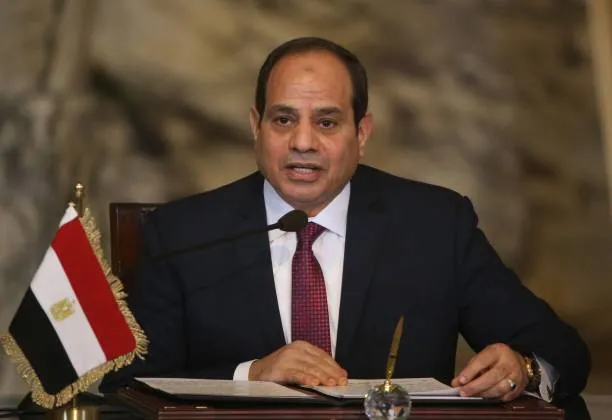Abdel Fattah el-Sissi, The President of Egypt, declared on Monday that he would stand for reelection in the elections set for December.
The country’s top lawmakers attended the three-day “Story of Homeland” national conference, which the president declared his candidacy at the conclusion of. It was carried by Egypt’s Extra News television channel, which has strong ties to Egyptian security forces.
El-Sissi added, “I have chosen to nominate myself to you to complete the dream of a new presidential term,” to applause from the conference attendees.
On December 10–12, Egypt will hold a three-day presidential election. If no contender receives more than 50% of the vote, a runoff will be held on January 8–10.
God willing, el-Sissi remarked, “I assure you that it will be an extension of our shared quest for the welfare of Egypt and its people.
According to observers, Egypt’s presidential election will take place in December rather than the spring of 2024 as provided for by the Constitution, a timeline shortened by economic concerns in a nation locked between inflation and devaluation.
The undisputed favorite going into the race is El-Sissi. He will be running at a time when the purchasing power of this nation of 105 million people is constantly declining: inflation is running at 40%, and the recent 50% devaluation has driven up the cost of products.
a few potential competitors
Several politicians have already declared their candidacies for the top job in the nation, but none seriously challenges el-Sissi, who has been in power since 2014 and has been under fire from the West for his nation’s human rights record. Ahmed Altantawy, a former politician and critic of the present administration, is one of the opponents.
The deadline for nominations is in October, the election campaign runs from November 9 to November 29, and Egyptian expats cast their ballots from December 1 to December 3.
In 2013, amidst major demonstrations against the elected president’s one-year tenure, El-Sissi, a former defense minister, spearheaded the military coup that toppled him. Since then, the government has intensified its campaign against dissent.
Many notable secular activists as well as thousands of government dissidents, mostly Islamists who were part of the 2011 uprising that deposed longstanding tyrant Hosni Mubarak, have been silenced or imprisoned.
He won reelection in 2018 to serve a second four-year term after being initially elected in 2014. In 2019, voters approved constitutional revisions that lengthened his second term by two years and gave him the option to seek a third, six-year term.
